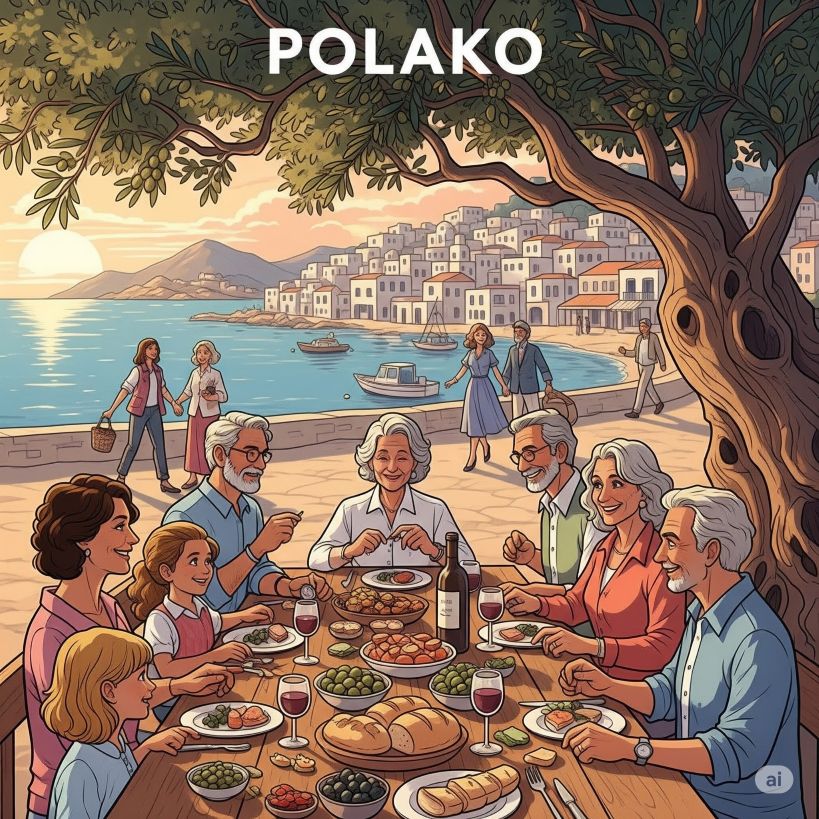PODGORICA, Montenegro – July 2, 2025 – It’s 9:43 on a Wednesday morning in Podgorica. In many of the world’s capitals, this hour represents the frantic peak of the daily grind: the final rush to the office, a flurry of urgent emails, the day’s first wave of stress. But here, in the heart of Montenegro, the rhythm is different. At the cafés lining the Mora?a river, the dominant sounds are the clinking of ceramic espresso cups and the low murmur of unhurried conversation. The air is thick with the scent of strong coffee and the promise of the day’s building heat.
This slower, more deliberate cadence is not a sign of lethargy. It is the expression of a deep cultural wisdom, a philosophy that stretches from the shores of the Adriatic to the islands of Greece and the coasts of Spain. In a world obsessed with productivity hacks and the relentless pursuit of "more," the Mediterranean offers a powerful antidote. It teaches us not how to do more, but how to live better.
Here are some of the lessons we can learn from this enduring culture.
1. The Table is a Sanctuary, Not a Fueling Station
In much of modern society, food has been reduced to fuel, often consumed hastily at a desk or on the go. The Mediterranean lesson is that a meal is, first and foremost, a social ritual. It is an event. It’s about gathering fresh, seasonal ingredients—ripe tomatoes, glistening olives, fragrant herbs—and transforming them into a shared experience. The true value of the meal is not in its caloric content but in the time spent together around the table, in the stories exchanged over a glass of wine, and in the simple act of breaking bread with family and friends. It’s a daily practice of connection that nourishes the soul as much as the body.
2. Community is Currency
The Mediterranean thrives on a dense social fabric. The daily evening stroll—the passeggiata in Italy, the xhiro in Albania, or simply the walk along the local riva—is a testament to this. It’s an informal institution where neighbors catch up, business is discussed, and relationships are reaffirmed. Life is lived in public squares, not just in private homes. This constant, casual interaction builds a profound sense of belonging and mutual support that is often absent in more individualistic cultures. The lesson is that a strong community is not a luxury; it is the foundational wealth of a society.
3. Embrace the Power of 'Polako'
Here in the Balkans, you will often hear the word polako. It translates to "slowly" or "take it easy," but its meaning is much deeper. Polako is a conscious rejection of haste. It is the permission to savor a moment, to finish a conversation without glancing at your watch, to do one thing at a time with your full attention. It’s not about being unproductive; it’s about understanding that a relentless pace leads to burnout, not brilliance. It is the wisdom of knowing that the most important things in life—relationships, good food, peace of mind—cannot be rushed.
4. Live in Dialogue with Nature
Life in the Mediterranean is inextricably linked to the natural world. The rhythm of the year is marked by the olive harvest and the grape harvest, not just the fiscal quarter. The direction of the wind and the warmth of the sun dictate the activities of the day. This creates a deep-seated respect for the environment and an appreciation for the simple, profound beauty of a sunset over the sea or the shade of an ancient olive tree. It teaches us to see ourselves not as masters of our environment, but as participants in it, finding health and harmony by living in accordance with its cycles
In the end, the wisdom of the Mediterranean is not a call to abandon our modern lives. It is an invitation to infuse them with a different set of priorities—to choose connection over convenience, presence over productivity, and well-being over wealth. It’s a reminder, echoing from this sunny café in Podgorica, that the good life is not something to be endlessly pursued, but something to be practiced, shared, and savored, one unhurried moment at a time.

